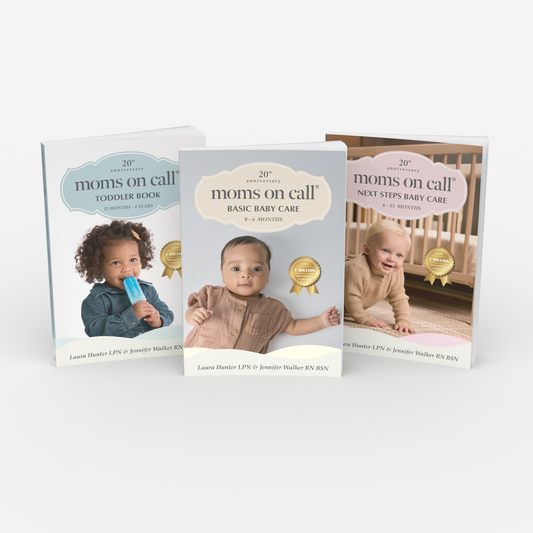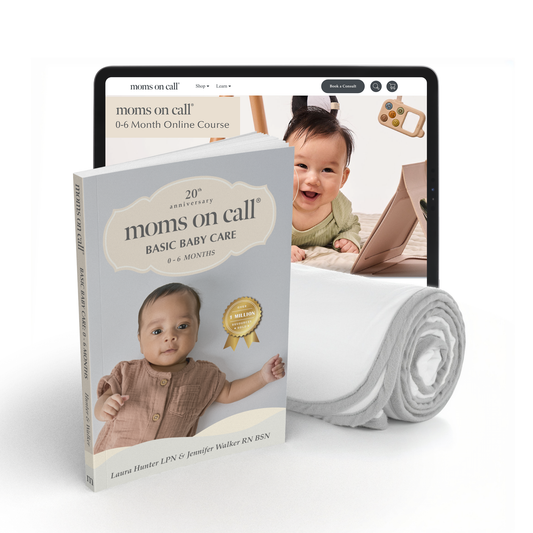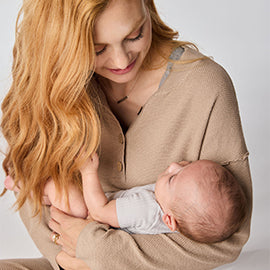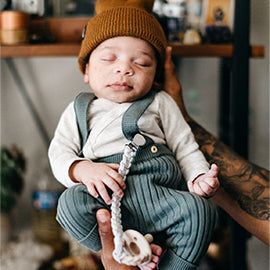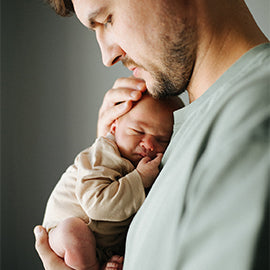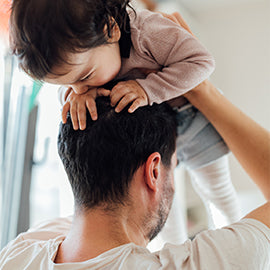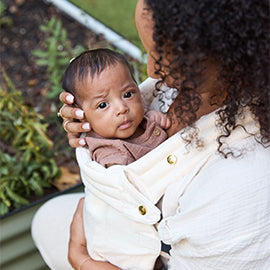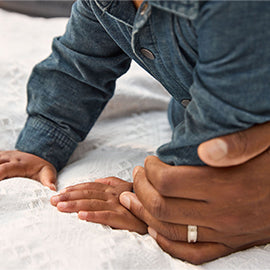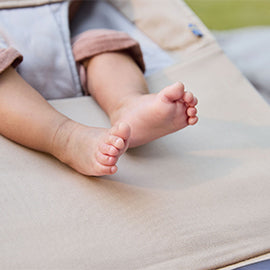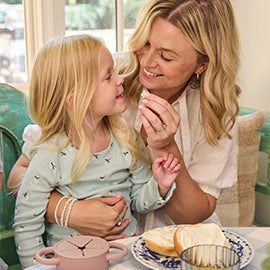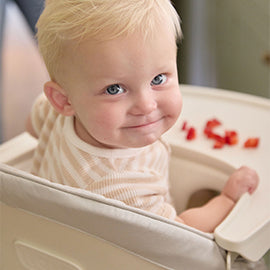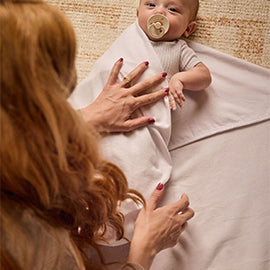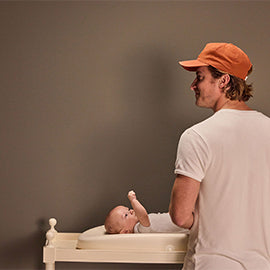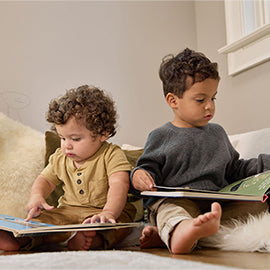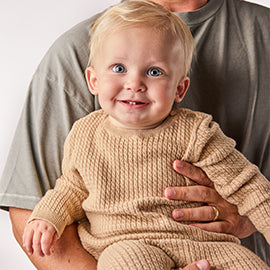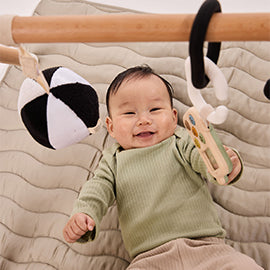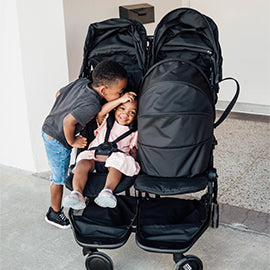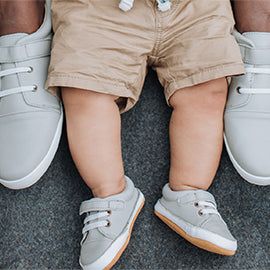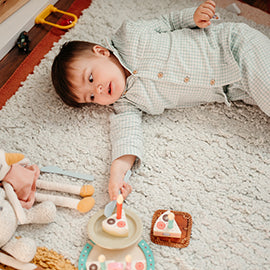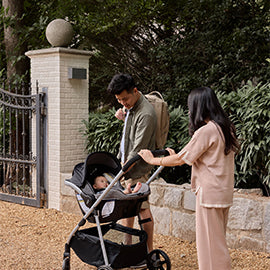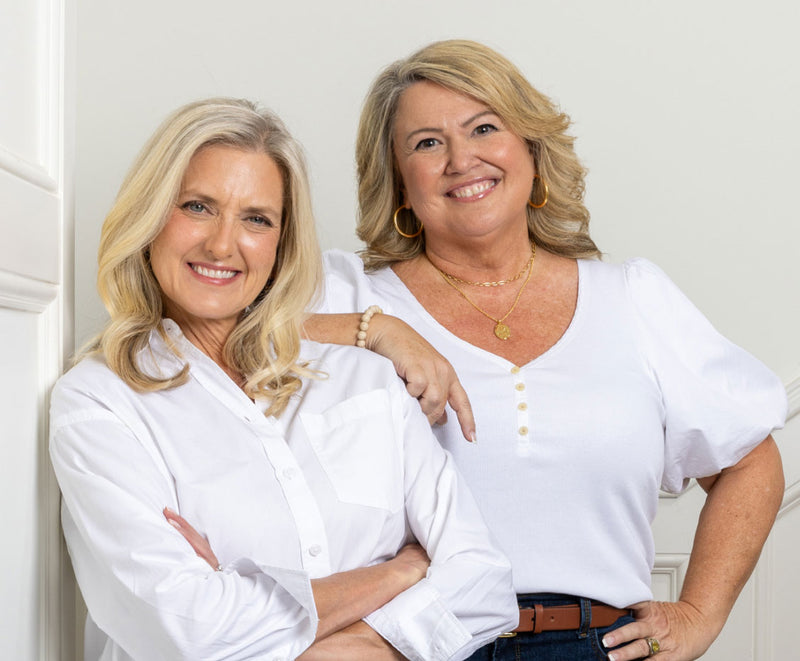First, we need to clear the air!
C-sections are NOT the easy way out! We hear so much on social media “oh a c-section is just a way to get out of vaginal delivery”. NOPE. Let us tell you a little story. Kelley, mama of 4 and co-founder of Revelle, was able to experience both vaginal birth and cesarean birth. Her first 2 sons, born vaginally, came with their own pelvic floor issues but then came-surprise! The TWINS!
Despite hoping for a vaginal delivery, baby B had other plans. So it was to the operating room! And because her story deserves to be told-she was headed to the OR with her husband via FaceTime. Yes FaceTime. See, her husband, Marvin tested positive for Covid just the day before and had to quarantine for 10 days with her 2 little boys. Talk about CRAZY!
She had not prepared for this - but luckily Kelley is not just an amazing mama but a pretty legit pelvic floor PT as well! She put in so much work on the front end getting ready for her major abdominal surgery and getting her place set up for a smooth recovery.
Having the background knowledge of what was to come made it much easier to prepare, but unfortunately not all women have access to this info. We're here to change that!
Understanding the anatomy of a c-section is essential. We really need to know the magnitude of this procedure to realize why recovery and prep is so important.
What really happens behind that screen during a C-section?
After you are prepped for surgery, you will have anesthesia to minimize the pain and sensation of surgery. The lower abdomen is prepped and then surgery begins.
***This is very sensitive and visual content***
The abdomen is opened in layers, here is a step by step:
- Skin incision made
- Then through the Subcutaneous Fat
- Next, incision through the Fascia
- Rectus abdominal are pulled apart
- Incision made through the Peritoneum (abdominal cavity)
- Reached the uterus and bladder- incision on peritoneum to move bladder down
- Now that the bladder is down and out of the way, an incision is made on uterus
- BABY IS BORN
- Placenta is delivered
- Uterus exteriorized(pulled out) and repaired
So, what is actually stitched back together during a C-section?
- Uterus incision, Yes
- Peritoneum and bladder flap, No
- Peritoneum behind the rectus muscles, No
- Rectus muscles, No
- Fascia, Yes
- Skin, Yes
On of our favorite Instagram accounts, describing this in detail (if you are ready for more) is @babiesafter35!
WOW-is all we have to say. Let’s take a minute for that to sink in. Big deal, right? This is also what makes recovery so vital as well.
There are 4 phases of C-section recovery:
Following these phases will help you feel strong and confident throughout your C-section recovery.

Phase 1: Protect and Heal

Phase 2: Initiate Safe Movement

Phase 3: Desensitize Scar Area with Gentle Touch
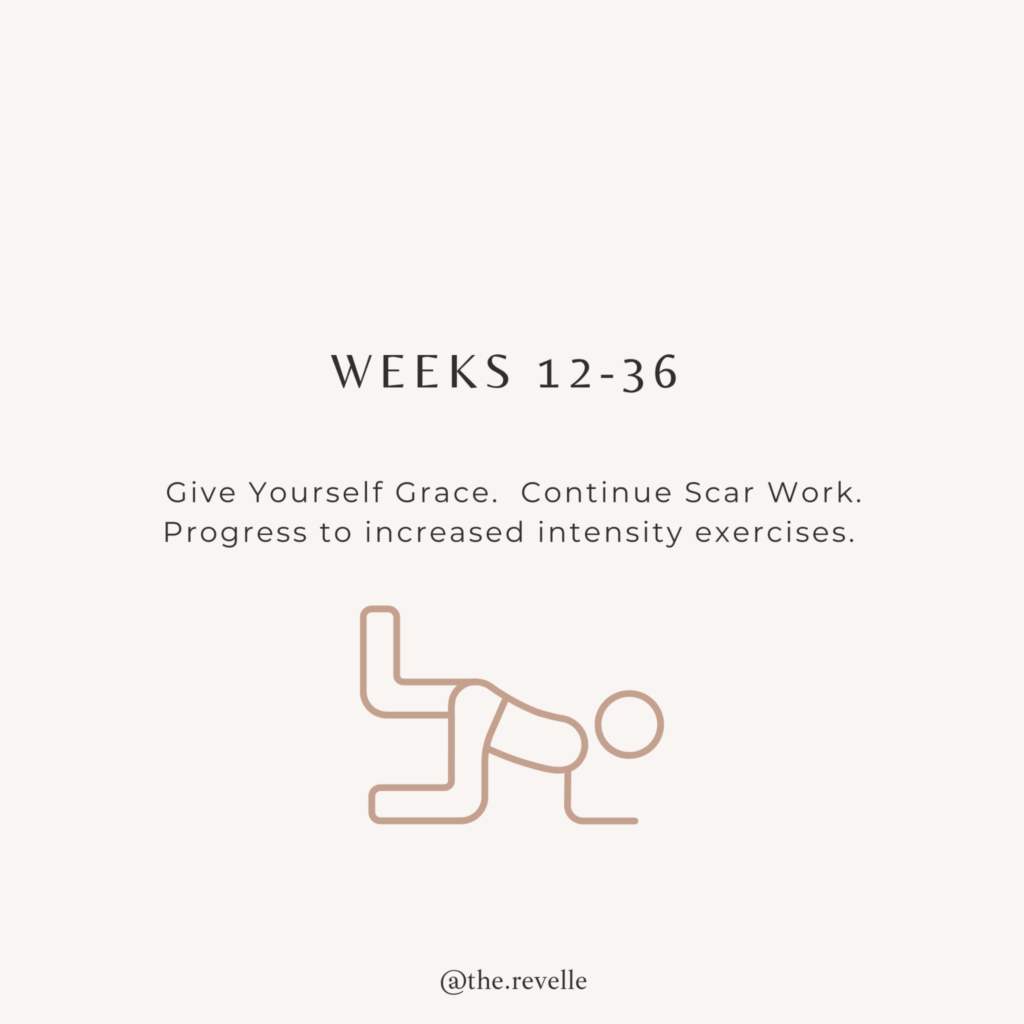
Phase 4: Give Yourself Grace and Progress at Your Speed
Let's talk about our favorite products for C-section prep and recovery:
What products are beneficial in recovery?
There are A LOT of products out there that are marketed to help heal or repair your stomach after having a baby. There truly is no quick fix.
Yes, a soft brace can be beneficial in the first few days after labor and delivery.
Braces are supposed to offer you support in the early postpartum phase and give your body the stability it's craving.
However, there are a lot of things that can go wrong with these braces and waist trainers! Typically, women are not educated on how to wear them and end up putting them on way too tight.
What's wrong with this?
- Wearing these devices too tight can actually cause issues with:
- Posture
- Breathing mechanics
- They can put a lot of downward pressure on your pelvic floor.
- Additionally, they can affect how your core is functioning. Which ultimately affects how the pressure management system works.
What do we recommend instead?
- We recommend women purchase a flexible garment to wear after birth that offers the support your body craves, but allows for the core to function properly.
- Meaning:
- Unrestricted diaphragmatic breathing
- No downward pressure on the pelvic floor
- The ability to gently start recruiting your Transverse Abdominis with simple movements.
- Meaning:
- We love @baobeibody, who makes some amazing products!

Here Are Our Top 5 Items We Recommend for Cesarean Recovery:
- These BaoBei Bloomers are life savers! One of our most fave products!!
- A good ice pack
- Scar away strips
- Stool softeners
- High waisted undies
Check out all of our “favorite things” for more!
Revelle is a women’s wellness practice that specializes in treatment for the common but abnormal issues women experience throughout their lifetime. We focus on pelvic floor dysfunction, pregnancy, and postpartum. We empower women to prioritize self-care to ensure they are functioning at their absolute best! Wondering why you should see a pelvic floor PT? Check out our website to learn more! Revelle — Women's Physical Therapy

